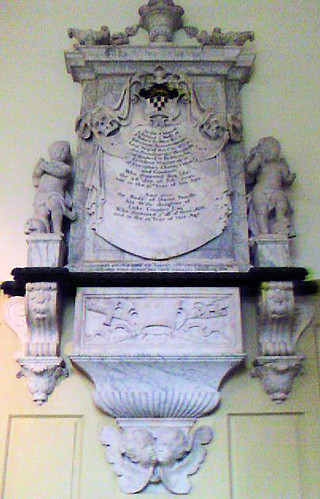Why, oh why? Life’s little mysteries can haunt you. Various sources I’ve read agree that in the 16th and probably early 17th century, drinks were served from a “sideboard” or “press cupboard”, and cups were not placed down on the table. One explanation I’ve read for this was that cups were rinsed between use, but a visit today to the Geffrye Museum came up with another – this was to protect the tablecloth. But really – does that make sense? Before the age of 18th-century politeness, wouldn’t the tablecloth have suffered anyway?
I’ve written up a substantial account of the visit on My London Your London – including a rather nice watering can used for purposes you probably wouldn’t imagine. And Pepys’ curtains.
I also enjoyed an account from Cesar de Saussure in 1726, exclaiming about the cleanliness of London houses, which were washed from top to bottom at least twice a week. And, he noted, kitchen utensils kept scrupolously clean – which does make you wonder what the French were doing at the time. (You can also read his account of highwaymen.)
Interesting other snippet: Between 1709 and 1831, candles were taxed.
The only interior in the building that survives in reasonably original condition is the chapel, which boasts this fine memorial:

To the founder, of course, and his wife, Dame Percilla, “daughter of Luke Cropley esq”. She died in 1676 at the age of 43.

 About
About
4 Comments
Pingback: British Blog Review » Anorak: Celebrity|Finance|Money